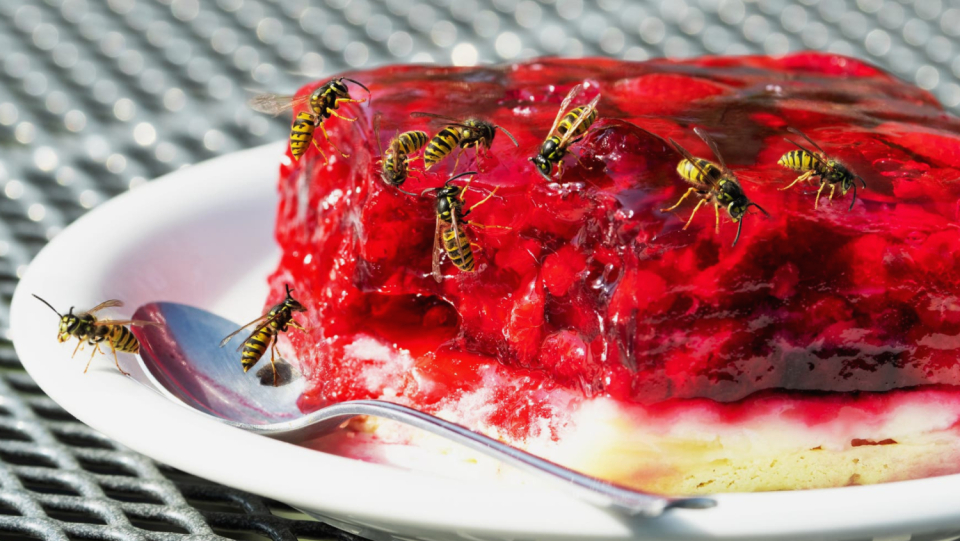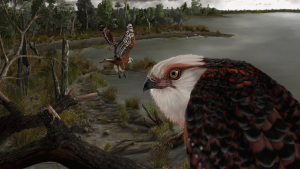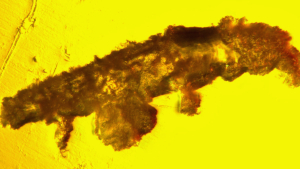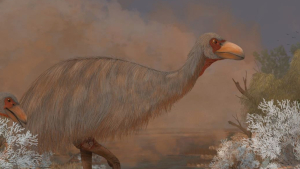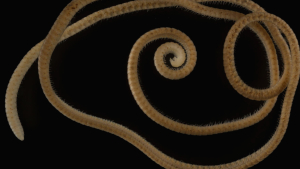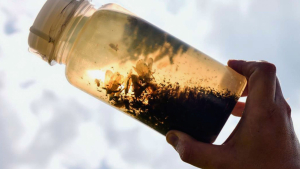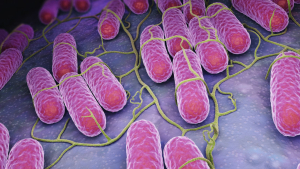The buffet is open. Covered the coffee table. It could have been so cozy. But the uninvited guests in black and yellow seem to have waited for their chance. The wasps sum around plates and glasses - only occasionally, then in team strength. Here you sab a piece of apple, where you snack on the cake or a sweet drink. At some point, constant vigilance is required so that none of the pests accidentally gets into their mouths. The fun of eating outdoors gets a strong damper.
Wasps can be annoying, no question. And especially in a situation as described above, the impression quickly arises that there are especially many this year. Also in numerous media reports, the year 2022 already bears the label "Wasp Year". But are the insects actually more common than usual? Experts cannot confirm this in such a general way. Because what is happening in Germany's wasp nests is complex. And by far not yet explored in all the details.
"Where a wasp people settles, depends heavily on the conditions in the area," explains Andreas Taeger from the Senckenberg German Entomological Institute in Müncheberg in Brandenburg. Because the insects have their claims. You don't just want a protected nesting site with the most favorable temperature and moisture conditions; Nearby, for example, there should also be enough food and building material for the nest. But all of this is distributed very differently locally, explains the wasp researcher. A few hundred meters further, the offer from insect view can look very different. If you have a nest in the garden, you may get a completely different impression of the presence of the animals than the neighbor a few houses further.
Under the radar
In addition, the nerve potential does not necessarily have to be related to its actual number. In some years, the wasps simply notice more than in others. "More people stay outdoors in warm temperatures, it is drunk and eaten," says Steffi Klotz, head of the German pest control association in North Rhine-Westphalian Ibbenbüren. "This generally attracts more wasps." The motivation to have the associated nest removed by experts. However, the expert cannot derive a trend of Germany from the number of missions of her colleagues: "Talks with member companies from our association have shown that the number of wasp nest controls vary from region to region."
The ecological research can also not serve with nationwide figures for the current wasp season. This would also be a mammoth project: the stocks would have to be recorded randomly throughout Germany and these data would have to be compared over the years. So far, such censuses exist only for a few insects.
The Helmholtz Center for Environmental Research in Halle, together with the Society for Butterfly Protection, launched a Citizen Science project called »Tagfaltermonitoring Germany«, in which everyone is able to participate. Nationwide, butterfly fans have been stuck and counted again and again since 2005 and count the animals observed. Also in the "mosquito atlas" project, an interdisciplinary team from the Leibniz Center for Agricultural Landscape Research and the Friedrich Loeffler Institute for Animal Health is based on the help of lay people that catch and send in mosquitoes.
But wasps are neither as popular as butterflies, nor can they transmit such dangerous diseases as mosquitoes. So, these insects often fly under the scientific radar, many of their populations remain unobserved. "Therefore, no one knows whether there are more wasps in Germany this year as a whole than usual," says Andreas Taeger.
The capital of the wasps
The Berlin area is one of the few regions that can be said more precisely. Because there the Nature Conservation Association (NABU) has been running a special project to protect the "hymenopter" skin wing - that is, the insect group, which includes bees and wasps. Where are conflicts lurking with such six -legged friends? How can you support bumblebees and other endangered wild bees? And what to do if wasps have settled in the garden or roller shutter box? Berliners can find out about such questions from the NABU at the "Hymenopter service" funded by the Senate. "Telephone advice is often sufficient," says NABU expert Stephan Härtel. If this does not help, the team relocates nests if necessary.
From this work, data on the wasps year 2022 can also be derived for Berlin. "We had three times as many inquiries as the year before," reports the biologist. Already in the spring, numerous callers complained about wasps trying to fly into apartments in search of nesting places. Later, the professionals were often called to nests. By the end of July, the hymenopter service had dealt with around 450 cases of disturbing wasps. By contrast, in 2021, just 150 cases were collected in the same period. According to this, 2022 seems to be a very strong wasps year, at least in the capital.
"Based on the observations of our NABU specialist group, we suspect that a lot of queens have come over the winter," says Stephan Härtel. This is crucial in wasps. Unlike honeybees, they do not hibernate in our latitudes as a whole people. Most animals die in autumn, only the young fertilized queen survives the cold season somewhere in a protected hiding place. In spring, she then founded a new people that will be bigger and bigger over the weeks.
Cool, dry winter helps wasp queens
The more such queens make this step, the more wasps there are in summer. A cool, dry winter is cheap. If there is too much moisture, the animals act slightly dangerous fungal infections. And too much warmth is not good. "Then your metabolism runs constantly and you use your energy reserves," explains Andreas Taeger. They are missing in spring when the starting shot for the founding of the state is found.
This phase in April and May is crucial for the success of the queens and their peoples. And the weather also played along this year: "The spring was neither too warm nor too cold," recalls Stephan Härtel. "And since it rained little, the animals were able to fly through the area a lot and collect food." The cornerstone for a successful wasp year was laid.
Wasp is not the same as wasp
However, this does not mean that a particularly large number of striped pests are buzzing around the cake plates of the capital. This was exactly the fear of many callers who registered with Hymenopter service in spring. Because even if it looks like this in the eyes of some laypersons: Waspe is not a wasp. The individual species not only have different demands, but also show a different conflict -prone behavior.
In an above-average number of cases handled by the NABU team this year, it was about the Medium wasp (Dolichovespula media) and the Saxon wasp (Dolichovespula saxonica). Both are rather reserved. "Medium wasps do sting people sometimes," says Stephan Härtel. However, this is due to the fact that these animals like to build their nests in bushes and hedges – and this is exactly at the time in spring when many garden owners cut their shrubs.
However, none of the two species that are particularly common this year are for mouth robbery. The adult animals primarily eat flower nectar, they feed their offspring with a porridge of chewed insects. They are not interested in plum cake or delicacies from the grill.
In contrast, it is quite different with the German wasp (Vespula Germanica) and the common wasp (Vespula vulgaris). These are the two types that are most often perceived as annoying because of their large appetite on meat and sweets. "However, these animals are not traveling more often in Berlin in 2022 than usual," reports Stephan Härtel.
You just want to eat
But even in such an average year, the striped visitors can become annoying. A wasp population consists of 4000 to 7000 members at its strongest times in late summer. And when the workers then swarm out in search of carbohydrate- and protein-rich food, the conflicts are pre-programmed. "Even these species don't really want anything from us," emphasizes Andreas Taeger. "Except for our food.«
For them, German wasps find interesting sources of food for them, among other things, through the smell of how experiments from an Argentine research team around Mariana Lozada from the Argentinian Universidad Nacional del Comahue show in Bariloche. The animals learn very quickly where there is something to get. And sometimes they even throw spontaneous aversions overboard. The researchers observed this when they prepared meat pieces with a fragrance that was actually deterred for wasps. First, the insects spurned these snacks. At some point, however, they learned that they were quite eating - and then even flew particularly eagerly towards the once avoided fragrance. After three to five visits to the feed source, they had saved the new preference in the long -term memory.
Efforts to get rid of uninvited guests by deterring scents do not seem to be particularly promising in the long run. And this also applies to many other supposedly effective methods of expulsion. "Most of the tips from the Internet don't work," says Andreas Taeger. His most important advice when dealing with wasps is: stay calm! Hitting the animals or frantically waving around in the air won't do any good: "That only makes them angrier." Playing shuttlecock near a nest or making other fast movements is also not a good idea. Because then the animals feel motivated to defend their refuge. The biologist believes that being attentive and avoiding when necessary is the most promising strategy. "If it gets too bad, I'll just go in and eat my cake there.«
If you want to stay outdoors, you should cover everything edible as far as possible, adds Stephan Härtel. And above all with the first flying visitor, she from settling down on the plate. "You can slowly and calmly push them away with a newspaper," says the expert. In his experience, the animals usually give up after a few attempts. The Landesbund for Bird Protection (LBV), on the other hand, recommends a few splashes of water from a spray bottle as an effective method of displacement. Then the animals apparently think that it starts to rain and flee into their nest.
To drive away the first wasp on the cake
"On the other hand, once you sit on the meat or cake, it is not good for two reasons," explains Stephan Härtel. On the one hand, one could never say what such an insect sat for - wasps are also enthusiastic Aasfresser. On the other hand, the scouts know immediately after landing how the discovered treat smells and tastes. And you don't keep this information to yourself: you can carry a few culinary souvenirs back into your nest and mark the way to the site with chemical attractants. Minutes later, more and more interested parties are buzzing around the table. This has to be prevented as far as possible.
If you should be stung despite all precautions, Stephan Härtel recommends a so-called stab healer from the pharmacy. As soon as possible after the unpleasant encounter with the insect, you hold this small electrical appliance on the sting and heat it up like this. Due to the strong heat effect, the wasp venom denatures, so that it can neither cause severe itching nor painful larger swellings.
Anyone who has acquainted with a wasp sting is usually not too good to speak to their striped neighbors. Objectively, however, it is definitely an advantage to have them in the area. Because they provide valuable services for people and ecosystems. Wasps dust numerous plants, recycles deadwood and eliminate AAS. "Such a people can completely deny a dead sparrow within a day," says Stephan Härtel. And even in other respects, the black and yellow insects operate as winged health police: they bring a lot of flies and mosquitoes to the route, including possible disease carriers. You can accept a few annoying encounters. Especially since the spook is over in November depending on the weather at the latest. Until next year.







